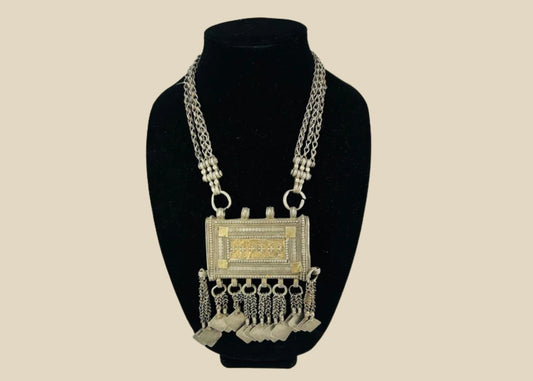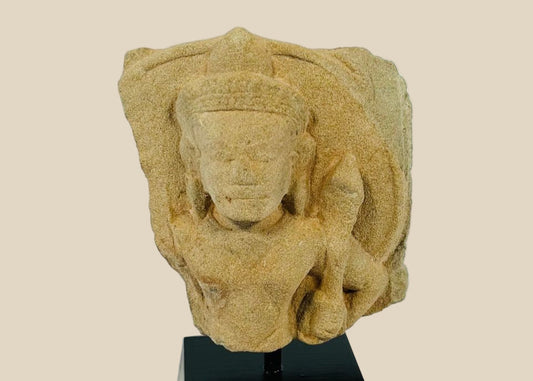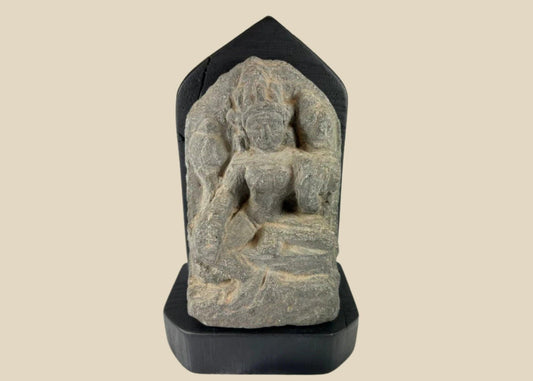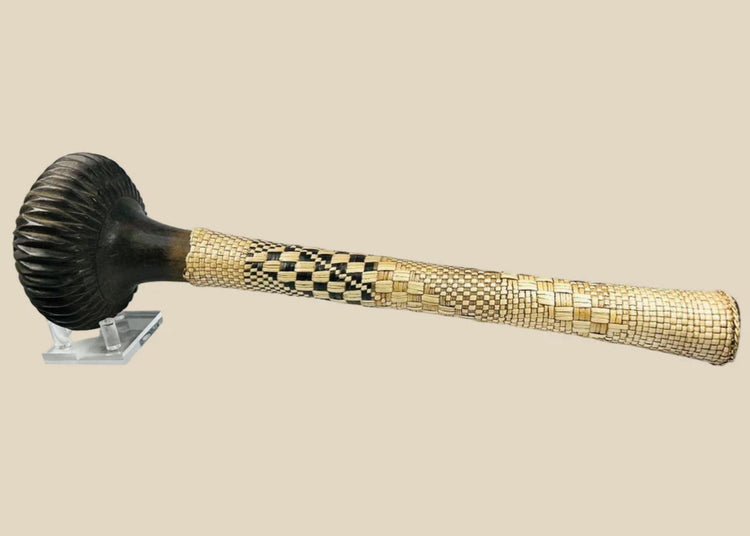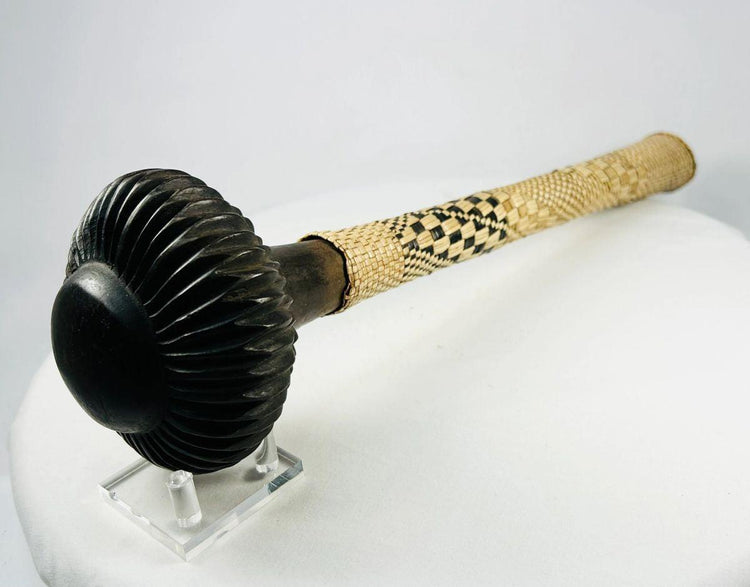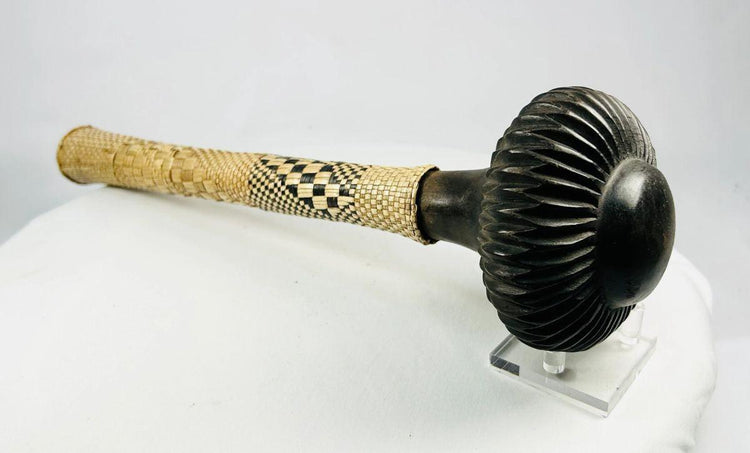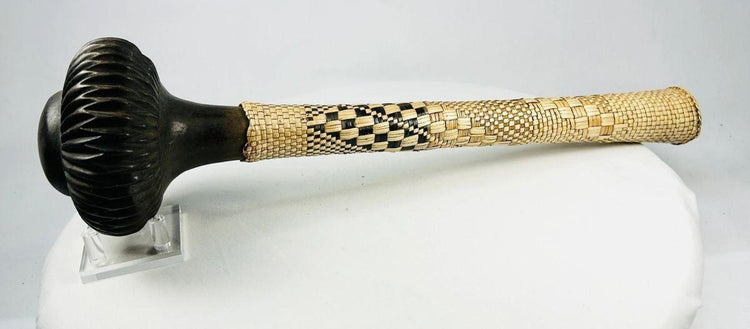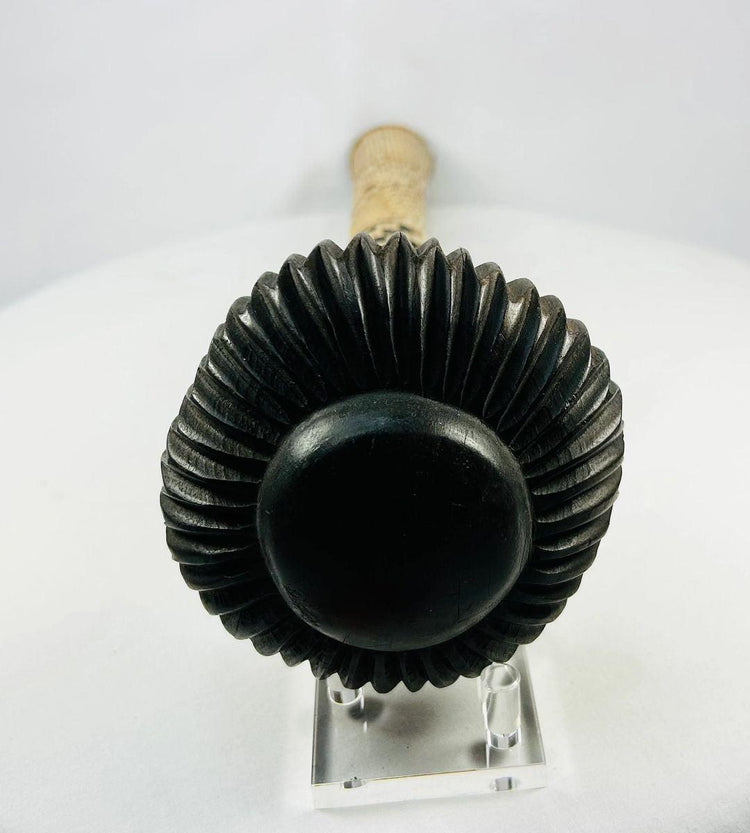Traditional Fijian Throwing Club | Hardwood Ula with Incised Grooves and Fiber Grip | Circa 19th–20th Century
Description
More
Less
Historical Context & Origin
Region: Fiji
Material: Hardwood with woven fiber grip
Period: 19th–20th Century
Description
This traditional Fijian Ula is a striking example of Pacific Island craftsmanship, reflecting both its functional and ceremonial significance. Historically, the Ula served as a throwing club used in combat, while also holding ceremonial importance as a status symbol for chiefs and warriors. Carved from dense hardwood, the head features finely incised grooves that provide both aesthetic appeal and improved grip. The handle is wrapped in an intricately woven fiber grip, demonstrating the artistry and weaving traditions of Fijian artisans. Measuring approximately 16 inches, this piece embodies the balance of functionality and symbolic power that defined the role of the Ula in Fijian society.
Features
- Hand-carved hardwood head with incised grooves
- Finely woven fiber grip, intact and secure
- Rich patina developed from age and use
- Balanced design for both ceremonial display and combat function
Cultural Significance
While the Ula was a formidable weapon, it also stood as an emblem of leadership and authority. Chiefs and warriors carried Ulas as symbols of prestige, and their design reflected both martial strength and cultural identity. The weaving patterns and carved grooves were not only decorative but carried symbolic resonance, emphasizing status and heritage. Today, such artifacts remain powerful links to Fijian cultural traditions, embodying both the artistry and values of the island’s people.
Condition
The Ula remains in very good antique condition, showing natural wear consistent with age and use. The hardwood head retains its carved detail and displays a deep patina that has developed over time, while the woven fiber grip is remarkably well preserved with minimal fraying. Subtle signs of aging on the wood, including light surface wear, add to the authenticity and historical presence of the piece. Overall, the Ula remains structurally stable and visually striking, with no modern repairs.
Dimensions (approximate)
Length: 16 in
Age
Approximately 100–200 years old
Description
Historical Context & Origin
Region: Fiji
Material: Hardwood with woven fiber grip
Period: 19th–20th Century
Description
This traditional Fijian Ula is a striking example of Pacific Island craftsmanship, reflecting both its functional and ceremonial significance. Historically, the Ula served as a throwing club used in combat, while also holding ceremonial importance as a status symbol for chiefs and warriors. Carved from dense hardwood, the head features finely incised grooves that provide both aesthetic appeal and improved grip. The handle is wrapped in an intricately woven fiber grip, demonstrating the artistry and weaving traditions of Fijian artisans. Measuring approximately 16 inches, this piece embodies the balance of functionality and symbolic power that defined the role of the Ula in Fijian society.
Features
- Hand-carved hardwood head with incised grooves
- Finely woven fiber grip, intact and secure
- Rich patina developed from age and use
- Balanced design for both ceremonial display and combat function
Cultural Significance
While the Ula was a formidable weapon, it also stood as an emblem of leadership and authority. Chiefs and warriors carried Ulas as symbols of prestige, and their design reflected both martial strength and cultural identity. The weaving patterns and carved grooves were not only decorative but carried symbolic resonance, emphasizing status and heritage. Today, such artifacts remain powerful links to Fijian cultural traditions, embodying both the artistry and values of the island’s people.
Condition
The Ula remains in very good antique condition, showing natural wear consistent with age and use. The hardwood head retains its carved detail and displays a deep patina that has developed over time, while the woven fiber grip is remarkably well preserved with minimal fraying. Subtle signs of aging on the wood, including light surface wear, add to the authenticity and historical presence of the piece. Overall, the Ula remains structurally stable and visually striking, with no modern repairs.
Dimensions (approximate)
Length: 16 in
Age
Approximately 100–200 years old
You May Also Like

